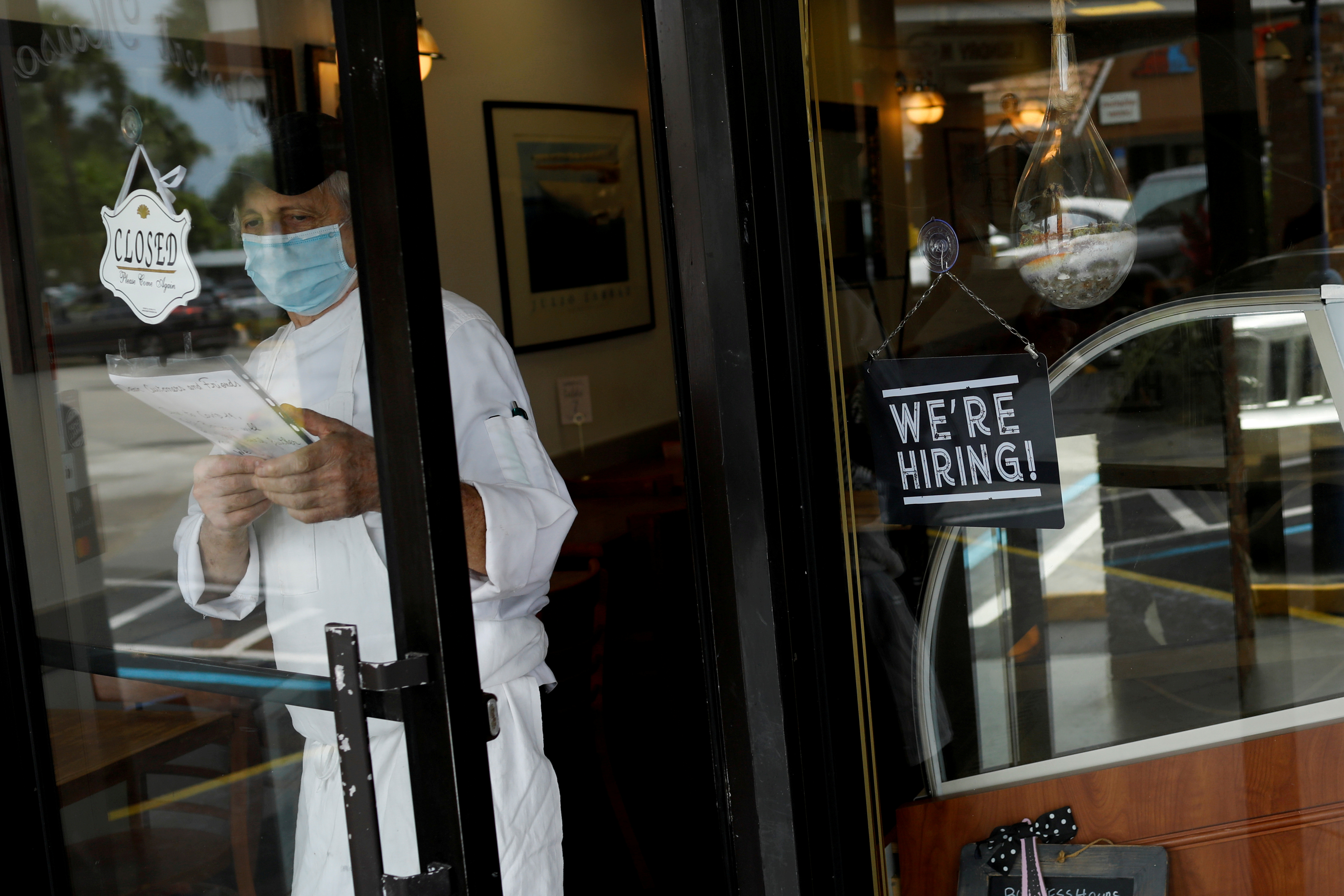Canada to tax tech giants as planned despite framework G7 tax deal, says Freeland
Canada is proceeding with its plan to tax technology giants next year even as the world's wealthiest democracies proposed a new global tax framework that includes plans to impose a levee on the firms, federal Finance Minister Chrystia Freeland said Saturday.

© Provided by The Canadian Press
Her remarks came following a meeting of G7 finance ministers, who hammered out details of the possible global taxation plan during talks held in London.
The Group of Seven wealthy democracies agreed to support a global minimum corporate tax of at least 15 per cent to deter multinational companies from avoiding taxes by stashing profits in low-rate countries. They also endorsed proposals to make the world's biggest companies — including U.S.-based tech giants — pay taxes in countries where they have lots of sales but no physical headquarters.
Freeland said Ottawa will still unilaterally impose its own digital services tax starting Jan. 1, 2022. Similar measures are already in place in Britain, France and Italy.
But Freeland noted countries would repeal their taxation plans following a transition to the new global system, she said after the meeting.
"We've shown today that it is possible to end the global race to the bottom on taxation and this world's leading liberal democracies are able to work together in the common interest," Freeland said in a media call from London.
"Multinational companies need to pay their fair share of taxes. Jurisdiction shopping allows them to avoid doing that."
Freeland wouldn't say if any Canadian companies would face the proposed new tax formula, but said some domestic firms would be subject to next year's digital tax.
Other G7 finance ministers said the framework agreement is not the end of the story. Instead, they said, is meant to propel long-standing discussions among a wider group of countries and signal that taxation changes are necessary.
U.S. Treasury Secretary Janet Yellen said the proposal "provides tremendous momentum" for reaching a global deal that "would end the race-to-the-bottom in corporate taxation and ensure fairness for the middle class and working people in the U.S. and around the world."
Nations have been grappling for years with the question of how to deter companies from legally avoiding paying taxes by using accounting and legal schemes to assign their profits to subsidiaries in tax havens — typically small countries that entice companies with low or zero taxes, even though the firms do little actual business there.
International discussions on tax issues gained momentum after U.S. President Joe Biden backed the idea of a global minimum of at least 15 per cent — and possibly higher — on corporate profits.
The meeting of finance ministers came ahead of an annual summit of G7 leaders scheduled to take place from June 11-13 in Cornwall, England. Prime Minister Justin Trudeau is planning to attend.
The endorsement from the G7 could help build momentum for a deal in wider talks among more than 135 countries being held in Paris, as well as a Group of 20 finance ministers meeting in Venice in July.
"We understand that this whole idea works only if we get the broadest possible group of countries to sign on and for that to happen they need to have a say as well," said Freeland, who is also deputy prime minister.
The framework proposes allocating taxing rights to countries on at least 20 per cent of profit exceeding a 10 per cent margin for the largest and most profitable multinational enterprises. That's something Canada doesn't currently have.
It also commits to a global minimum tax of at least 15 per cent to be levied on a country by country basis.
The framework could force some of the world's biggest companies, including U.S.-based tech giants like Facebook, Google, Apple and Microsoft, to pay taxes in countries where they generate significant revenue but have no physical headquarters.
The U.S. considers those national taxes to be unfair trade measures that improperly single out American firms.
Facebook vice-president for global affairs Nick Clegg said the deal is a big step toward increasing business certainty and raising public confidence in the global tax system, but acknowledged it could cost the company.
"We want the international tax reform process to succeed and recognize this could mean Facebook paying more tax, and in different places," Clegg said on Twitter.
Freeland said it's important to Canada that a minimum floor be established for corporate taxes.
"We're a relatively high-tax country. We need to be because we have a high level of public services and that means that a corporate tax race to the bottom really hurts us," she said.
Conservative finance critic Ed Fast said the party strongly disagrees with Canada's decision to sign on to a global minimum tax.
"We strongly support efforts to make multinational tax avoiders like Facebook and Google pay their fair share, but that doesn't mean giving up sovereignty over our tax system," he said in a statement. "Canadians, and Canadians alone, determine our nation's domestic tax policy and rates."
Britain’s Treasury chief Rishi Sunak, the meeting’s host, said the deal would reform the global tax system to make it fit for the digital age and to ensure "the right companies pay the right tax in the right places."
The global minimum tax rate was backed by U.S. President Joe Biden, who originally pushed for a minimum tax rate of 21 per cent. Biden is proposing a 21 per cent U.S. tax rate on companies' overseas earnings, an increase from the 10.5 to 13.125 per cent enacted under former president Donald Trump. Freeland credited Yellen with proposing a compromise position.
Freeland also said she had a bilateral meeting with Yellin where they discussed Buy America policies, softwood lumber, the Line 5 pipeline, carbon pricing and climate action.
This report by The Canadian Press was first published June 5, 2021.
— With files from The Associated Press
Ross Marowits, The Canadian Press
Tech giants and tax havens targeted by historic G7 deal
LONDON (Reuters) -The United States, Britain and other large, rich nations reached a landmark deal on Saturday to squeeze more money out of multinational companies such as Amazon and Google and reduce their incentive to shift profits to low-tax offshore havens.
Hundreds of billions of dollars could flow into the coffers of governments left cash-strapped by the COVID-19 pandemic after the Group of Seven (G7) advanced economies agreed to back a minimum global corporate tax rate of at least 15%.
Facebook said it expected it would have to pay more tax, in more countries, as a result of the deal, which comes after eight years of talks that gained fresh impetus in recent months after proposals from U.S. President Joe Biden's new administration.
"G7 finance ministers have reached a historic agreement to reform the global tax system to make it fit for the global digital age," British finance minister Rishi Sunak said after chairing a two-day meeting in London.
The meeting, hosted at an ornate 19th-century mansion near Buckingham Palace in central London, was the first time finance ministers have met face-to-face since the start of the pandemic.
U.S. Treasury Secretary Janet Yellen said the "significant, unprecedented commitment" would end what she called a race to the bottom on global taxation.
German finance minister Olaf Scholz said the deal was "bad news for tax havens around the world".
Yellen also saw the G7 meeting as marking a return to multilateralism under Biden and a contrast to the approach of U.S. President Donald Trump, who alienated many U.S. allies.
"What I've seen during my time at this G7 is deep collaboration and a desire to coordinate and address a much broader range of global problems," she said.
Ministers also agreed to move towards making companies declare their environmental impact in a more standard way so investors can decided more easily whether to fund them, a key goal for Britain.
TAXING TIMES
Current global tax rules date back to the 1920s and struggle with multinational tech giants that sell services remotely and attribute much of their profits to intellectual property held in low-tax jurisdictions.
Nick Clegg, Facebook's vice-president for global affairs and a former British deputy prime minister, said: "We want the international tax reform process to succeed and recognise this could mean Facebook paying more tax, and in different places."
But Italy, which will seek wider international backing for the plans at a meeting of the G20 in Venice next month, said the proposals were not just aimed at U.S. firms.
Yellen said European countries would scrap existing digital services taxes which the United States says discriminate against U.S. businesses as the new global rules go into effect.
"There is broad agreement that these two things go hand in hand," she said.
Key details remain to be negotiated over the coming months. Saturday's agreement says only "the largest and most profitable multinational enterprises" would be affected.
European countries had been concerned that this could exclude Amazon - which has lower profit margins than most tech companies - but Yellen said she expected it would be included.
How tax revenues will be split is not finalised either, and any deal will also need to pass the U.S. Congress.
French Finance Minister Bruno Le Maire said he would push for a higher minimum tax, calling 15% "a starting point".
Some campaign groups also condemned what they saw as a lack of ambition. "They are setting the bar so low that companies can just step over it," Oxfam's head of inequality policy, Max Lawson, said.
But Irish finance minister Paschal Donohoe, whose country is potentially affected because of its 12.5% tax rate, said any global deal also needed to take account of smaller nations.
The G7 includes the United States, Japan, Germany, Britain, France, Italy and Canada.
(Additional reporting by Andy Bruce, David Lawder, Padraic Halpin, Thomas Escritt, Giulia Segreti, Sabahatjahan Contractor and Mathieu RosemainEditing by Alexander Smith and David Holmes)





















